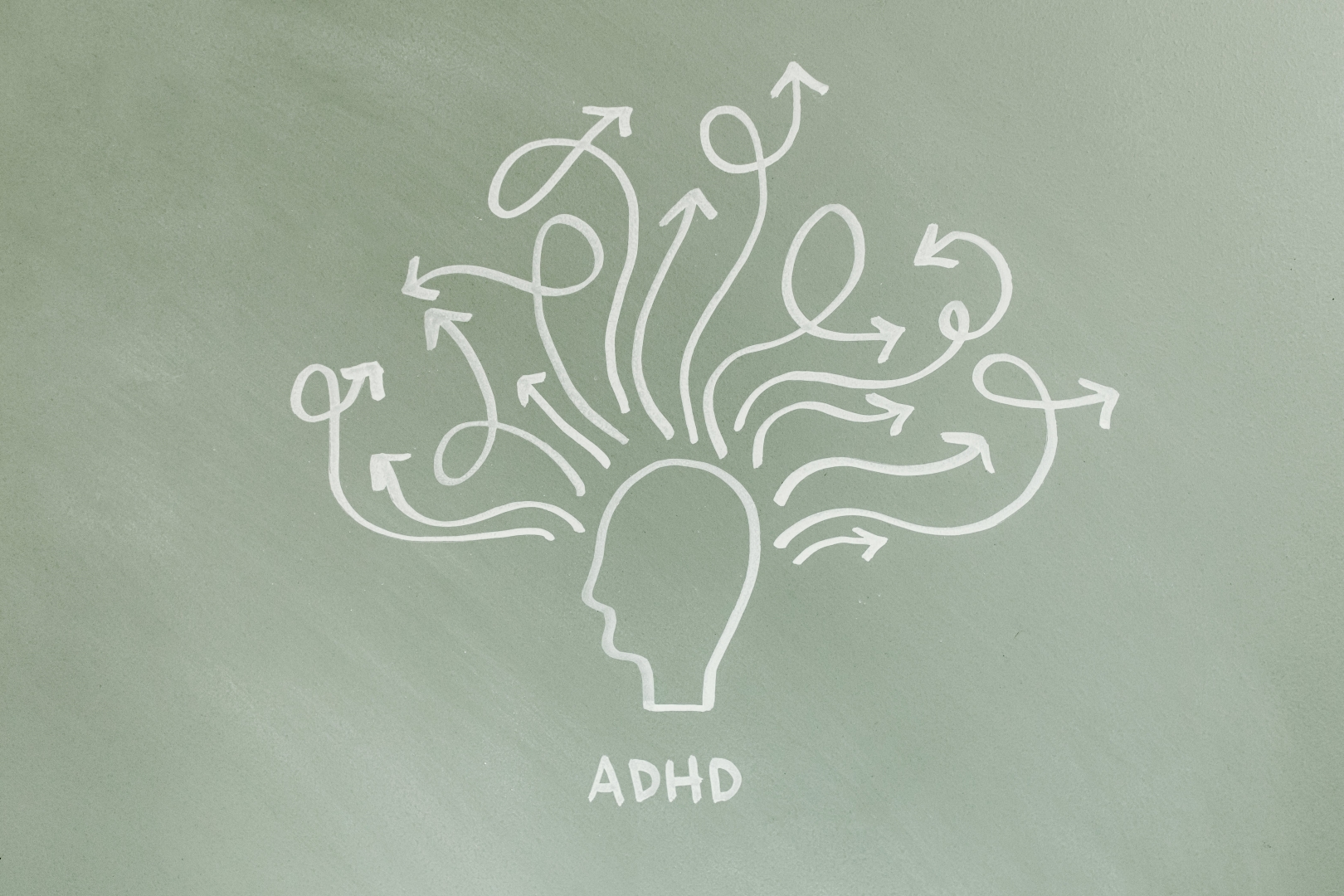100+ Successful Tips for Adults with ADHD or Other Disorders
Living with ADHD (Attention Deficit Hyperactivity Disorder) or ADD (Attention Deficit Disorder) as an adult can present unique challenges. But with this comprehensive list of valuable tips for adults with ADHD, you can thrive and excel.
People with these conditions often seek strategies to improve their daily lives, from focus to impulsivity.
In this guide, we’ll explore over 100 practical tips to enhance productivity, focus, and well-being for adults with ADHD. (Learn more about ADHD causes, types and treatments here)
Understanding ADHD and ADD: ADHD and ADD are neurodevelopmental disorders that can persist into adulthood. They commonly manifest as impulsivity, hyperactivity, and inattentiveness, which can significantly affect one’s ability to concentrate and stay organized.
What Does being Neurodivergent mean?
Being neurodivergent means having a brain that functions differently from the neurotypical or “typical” brain.
It encompasses a range of conditions and traits, including but not limited to autism, ADHD, dyslexia, and others.
Neurodivergent individuals may have unique strengths and challenges related to their cognitive and sensory processing, social interactions, and communication. Embracing neurodiversity promotes the understanding and acceptance of these differences in the broader context of human variation.
Following are more than 100 tips, tools and tricks you can use to help you thrive and embrace your neurodiverse brain functions.
We understand that this list could be overwhelming, so we’ve broken it down in to the following 13 categories. We hope this list guides you to helpful solutions so you can reach your maximum potential in your life and your work.
The Power of Structure and Organization
Structure and organization are key to managing the challenges of ADHD and ADD. In this section, we’ll explore effective strategies to create a structured environment, manage time, and break tasks into manageable steps.
These 14 techniques will help you stay focused and increase your productivity.
- Create a Structured Environment: Establish a daily routine with consistent times for activities like waking up, meals, work, and leisure.
- Use calendars or day planners to schedule and prioritize tasks.
- Break Down Tasks: Divide larger tasks into smaller, manageable steps to prevent feeling overwhelmed.
- Use Digital Tools: Leverage digital calendars, to-do lists, and reminder apps to help you stay organized.
- Set Clear Goals: Define your goals and objectives clearly before beginning any task.
- Prioritize Tasks: Assign priority levels to your tasks to ensure you tackle the most important ones first.
- Time Blocking: Allocate specific time blocks for different activities to maintain focus.
- Establish a Dedicated Workspace: Create a workspace that is free from distractions and optimized for productivity.
- Minimize Clutter: Keep your workspace tidy to minimize distractions.
- Turn Off Notifications: Silence or disable notifications on your devices during focused work periods.
- Utilize Noise-Canceling Headphones: These can be highly effective in blocking out auditory distractions.
- Mindful Breathing: Take deep, intentional breaths to regain focus when your mind starts to wander.
- Practice Mindfulness: Engage in mindfulness exercises to enhance self-awareness and promote mental clarity.
- Utilize a Bullet Journal: Consider using a bullet journal to keep track of tasks and goals.

Effective Time Management Strategies
Time management is a crucial skill for individuals with ADHD and ADD. In this section, we’ll delve into a range of effective time management strategies.
From the Pomodoro Technique to using visual timers and alarms, these techniques will help you maintain focus, stay organized, and manage your time efficiently.
- The Pomodoro Technique: Work in 25-minute intervals (Pomodoros) with short breaks in between to maintain focus.
- Visual Timers: Set visual timers to track the time spent on specific tasks.
- Set a Timer or Alarm: Use alarms to remind yourself to switch between different tasks.
- Use Task Management Apps: Explore task management apps designed for task and time management.

The Power of Exercise and Physical Activity
Regular exercise and physical activity play a significant role in managing ADHD and ADD. In this section, we’ll explore different physical activities like jogging and yoga and how they boost focus, cognitive function, and well-being.
- Regular Exercise: Incorporate regular physical activity into your routine to improve focus and cognitive function.
- Outdoor Activities: Spending time in natural environments can help reduce symptoms of ADHD.
- Jogging: Consider jogging as a form of exercise to enhance your well-being.
- Cycling: Biking can be an enjoyable and beneficial exercise for adults with ADHD.
- Swimming: Swimming offers both physical activity and a calming effect on the brain.
- Yoga: Yoga can improve frustration tolerance and reduce stress levels.
- Mindful Walking: Practice mindful walking to connect with the present moment.

Mental Clarity and Focus Enhancement
Achieving mental clarity and enhancing focus is a significant challenge for individuals with ADHD and ADD. In this section, we’ll explore a range of techniques that can help you attain a sharper focus and greater mental clarity.
By incorporating these strategies into your daily routine, you can enhance your mental clarity and sharpen your focus.
- Mindful Meditation: Dedicate time each day to practice mindfulness and meditation.
- Deep Breathing Exercises: Use deep breathing exercises to regain focus and reduce anxiety.
- Grounding Techniques: Employ grounding techniques to reconnect with the present moment.
- Progressive Muscle Relaxation: Use this technique to ease tension and improve focus.

Seeking Professional Guidance
When managing ADHD and ADD, consider seeking professional guidance.
This includes consulting with psychologists or psychiatrists for personalized advice, discussing medication options with healthcare professionals, exploring therapy, and considering counseling for emotional regulation and self-acceptance.
- Consult a Mental Health Professional: Consider consulting with a psychologist or psychiatrist for personalized guidance.
- Medication: Discuss medication options with a healthcare professional if they might be beneficial.
- Therapy: Individual or group therapy can provide valuable support in managing ADHD.
- Counseling: Consider counseling for emotional regulation and self-acceptance.

Building a Support Network
For individuals dealing with ADHD and ADD, having a strong support network is crucial.
This section offers various options to help you find support more easily.
Here are some ideas for building an effective support network to aid in helping you thrive in life.
- Family and Friends: Reach out to family and friends who can provide support and understanding.
- Online Communities: Join online communities or support groups to connect with others facing similar challenges. Here are a couple of website where you can find help.
- Supportive Colleagues: Let your colleagues know about your condition for a more accommodating work environment.
- Peer Support: Connect with peers who understand your experiences to share insights and strategies.

Tips for Enhanced Focus and Concentration
Enhancing focus and concentration is vital for managing ADHD and ADD.
In this section, you’ll discover eight proven techniques to boost your concentration and self-esteem. By implementing these suggestions, you can enhance your focus and build greater self-confidence.
- Goal Visualization: Visualize your goals to maintain focus and motivation.
- Positive Self-Talk: Replace negative thoughts with positive affirmations to boost your confidence.
- Mind Mapping: Use mind maps to organize thoughts and ideas.
- Color Coding: Employ color-coding for organization and memory retention.
- Sticky Notes: Place sticky notes with important reminders where you’ll notice them.
- Goal Setting: Set SMART (Specific, Measurable, Achievable, Relevant, Time-bound) goals.
- Prioritization Matrix: Use a prioritization matrix to identify important tasks.
- Two-Minute Rule: If a task takes less than two minutes, do it immediately.

Strategies for Managing Procrastination
Overcoming procrastination is a common challenge for people with ADHD and ADD. This section presents strategies to help you combat procrastination and improve productivity.
- Set Clear Deadlines: Assign realistic deadlines to prevent procrastination. Meeting deadlines will help you feel more successful.
- Progress Tracking: Keep track of your progress on tasks to stay motivated.
- Accountability Partner: Work with an accountability partner to stay on track.
- Task Batching: Group similar tasks together to be more efficient.
- Reward System: Use a reward system to incentivize task completion.

Managing Impulsivity and Staying Organized
Controlling impulsivity is a key aspect of managing ADHD and ADD. In this section, we explore strategies to help you maintain organization and manage impulsive behavior effectively. These techniques aid in enhancing impulse control and overall organization.
- Cooling-Off Period: Give yourself time to reconsider impulsive decisions.
- Where Will This Live?: Consider the consequences of purchases before making them.
- Repeat Before Speaking: Paraphrase what others say before responding to control impulsivity.
- Self-Analysis: Analyze impulsive behavior by writing down the situation and feelings associated with it.
- Elastic Band Technique: Use an elastic band to refocus when tempted by impulsivity.
- Note Taking: Take notes to remember important points during meetings and discussions.
Learn more about Impulse Control Disorder here.

Healthy Sleep Habits
Establishing healthy sleep habits is vital for individuals with ADHD and ADD. This section provides strategies to help improve your sleep quality. Utilizing some of these concepts will contribute to better overall well-being.
- Set a Wind-Down Alarm: Program a bedtime alarm to prepare for sleep.
- Melatonin Supplements: Consider melatonin supplements to improve sleep.
- Avoid Caffeine Before Bed: Skip caffeinated beverages within 5-7 hours of bedtime.
- Keep a Consistent Wake Time: Maintain a regular wake-up time to regulate sleep hormones.
- Use Sleep Masks: Sleep masks or blackout curtains can enhance sleep quality.
- Bed Only for Sleep: Use your bed solely for sleep and intimacy to establish a sleep-friendly environment.
Learn more about sleep habits and sleep deprivation here.

Productivity in Daily Life
Maintaining productivity in daily life is essential to help you thrive. The following techniques can enhance your daily productivity and organization.
- Start Small: Begin with small tasks to make progress on larger projects.
- Use Grocery Apps: Streamline grocery shopping with apps for lists and syncing with family members.
- Home Routine Calendar: Create a chore list with a wall calendar and color coding.
- Plant Care Apps: Utilize apps to track plant watering schedules.
- 20-Minute Rule: Commit to working on a task for 20 minutes before rewarding yourself with downtime or leisure activities.
- Make Chores Fun: Enhance the chore experience by adding music, wearing a “cleaning outfit,” and focusing on one task at a time.
- Invite Guests: Motivate yourself to tidy up by inviting guests over for dinner or drinks regularly.
- Ask for Help: Don’t hesitate to seek help when feeling overwhelmed. A little encouragement or assistance can make a significant difference.
- Chores as Exercise: Use chores as a form of exercise by monitoring your steps or movement.
- Clearing Out the Fridge: Dedicate a specific day of the week to clear out old food from the fridge.

Self-Care and Well-Being
Self-care and well-being are crucial for Neurodivergent individuals. By incorporating a few of the following 12 practices could truly enhance your life.
- Identify Triggers: Recognize sounds, situations, or people that trigger feelings of overwhelm or frustration, and plan accordingly.
- Scheduled Meals: Avoid skipping meals and overeating by scheduling regular, protein-rich meals.
- Hygiene Routines: Maintain a consistent hygiene routine and simplify it during challenging times.
- Stain Management: Learn effective techniques for removing stains to prolong the life of your favorite clothes.
- Yoga Practice: Dedicate 10-15 minutes daily to a yoga practice to improve well-being, frustration tolerance, and stress levels.
- Positive Affirmations: Create and regularly change positive affirmations placed in visible areas to boost self-esteem and self-love.
- Gratitude Practice: Set daily reminders to practice gratitude, pausing to reflect on something you are grateful for.
- Self-Indulgence: Indulge in a little self-care to unwind and rejuvenate. Treat yourself to a soothing skincare face mask, savor your favorite snack, or enjoy a relaxing TV show at the end of a challenging day. These small indulgences can be a great way to pamper yourself and find moments of comfort and relaxation.
- Setting Boundaries: Empower yourself to say no when necessary and avoid overcommitting.
- Embrace Imperfection: Understand that nobody is perfect, and it’s okay to be human.
- Mirror Affirmations: Use positive affirmations on sticky notes placed on mirrors to enhance self-confidence.
- Support Groups: Consider joining support groups or online communities focused on ADHD to connect with like-minded individuals.

Thrive with ADHD – Strategies for Success
Thriving with ADHD requires a unique approach that embraces your neurodiversity. By following these strategies, you can not only cope with ADHD but excel and thrive in various aspects of life.
- Embrace Neurodiversity: View ADHD as a unique brain wiring, not a limitation.
- Advocate for Accommodations: In the workplace or educational settings, advocate for accommodations that suit your needs.
- Discover Your Strengths: Identify your unique strengths, such as creativity, hyperfocus, or out-of-the-box thinking.
- Break Big Goals into Smaller Steps: Divide long-term goals into smaller, achievable milestones.
- Maintain a Growth Mindset: Cultivate a growth mindset to embrace challenges and see them as opportunities for growth.
- Avoid Multitasking: Focus on one task at a time to increase efficiency and reduce mistakes.
- Regular Review and Adjustment: Periodically review your strategies and make adjustments as needed.
- Celebrate Achievements: Acknowledge and celebrate your accomplishments, no matter how small they may seem.
- Develop a Morning Routine: Create a consistent morning routine to start the day on a positive note.
- Practice Self-Compassion: Be kind to yourself, acknowledging that everyone makes mistakes.
- Set Realistic Expectations: Avoid setting unrealistic standards for yourself, as it can lead to frustration.
- Embrace Creativity: Tap into your creativity to find innovative solutions to challenges.
- Time-Blocking for Downtime: Allocate specific time blocks for relaxation and leisure activities.
- Connect with Role Models: Seek inspiration from individuals who have thrived with ADHD.
- Establish a Sleep Routine: Create a bedtime routine to improve sleep quality and consistency.
- The Power of No: Learn to say no when necessary to avoid overcommitting and preserve your well-being.
- Mindful Eating: Practice mindful eating to enhance focus and maintain a healthy diet.
- Hobbies and Interests: Engage in hobbies and interests that bring you joy and satisfaction.
- Master the Art of Self-Control: Develop self-control techniques to manage impulsive behaviors.
- Feedback Loop: Seek feedback from trusted individuals to gain insights into your progress.
- Appreciate Small Wins: Celebrate small accomplishments and use them as motivation.
- Embrace Technology: Utilize technology and productivity apps to stay organized and on track.
- Create a Vision Board: Design a vision board with your goals and aspirations for inspiration.

Understanding ADHD and ADD
ADHD and ADD are neurodevelopmental disorders that affect children and adults.
People with these disorders often struggle with impulsivity, hyperactivity, and inattentiveness, which can significantly impact their ability to concentrate and stay organized.
Impulsivity
The impulsivity associated with attention disorders can lead to hasty decision-making and risky behaviors. This can manifest as interrupting others, blurting out answers, or reckless spending.
Hyperactivity
Hyperactivity is another common symptom of ADHD, although it may not be as prominent in individuals with ADD. (For a list of other ADHD symptoms read this article)
Hyperactive behavior often involves excessive fidgeting, restlessness, and an inability to stay still or remain seated for extended periods.
Individuals with these disorders may also have trouble staying on task, getting easily distracted, and struggling to follow through on instructions or complete assignments.
Overwhelming Feelings
The impact of these symptoms on an individual’s ability to concentrate and stay organized can be significant.
Tasks that require sustained mental effort, such as reading, studying, or completing work projects, can become overwhelming and frustrating.
Maintaining Relationships
Furthermore, individuals with ADHD and ADD may find it challenging to maintain healthy relationships.
They might struggle with active listening, managing their emotions, or being consistently attentive to their partners, friends, or family members.
Conclusion
Living as an adult with ADHD or ADD comes with its unique set of challenges. But with more than 100 practical tips, individuals can thrive, boost their focus, and improve their well-being
By embracing structure and organization, effective time management, regular exercise, and strategies for managing impulsivity, individuals can lead fulfilling lives.
Moreover, building a strong support network and practicing self-care are essential components of thriving with ADHD. Remember, ADHD is not a limitation but a unique aspect of your identity.
Use these strategies to unlock your full potential and live a rewarding life filled with accomplishments and personal growth.

